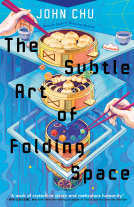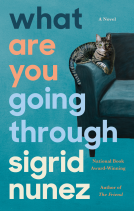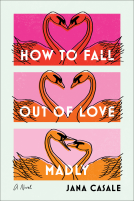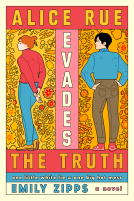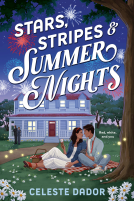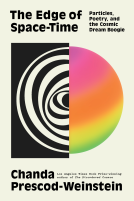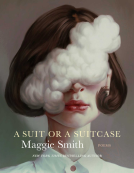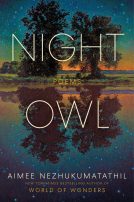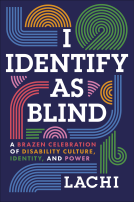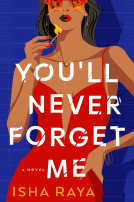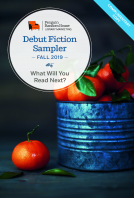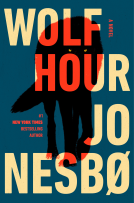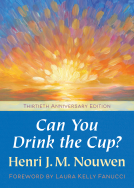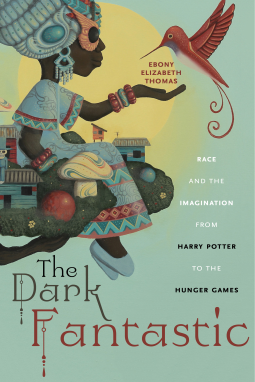
The Dark Fantastic
Race and the Imagination from Harry Potter to the Hunger Games
by Ebony Elizabeth Thomas
This title was previously available on NetGalley and is now archived.
Send NetGalley books directly to your Kindle or Kindle app
1
To read on a Kindle or Kindle app, please add kindle@netgalley.com as an approved email address to receive files in your Amazon account. Click here for step-by-step instructions.
2
Also find your Kindle email address within your Amazon account, and enter it here.
Pub Date May 21 2019 | Archive Date Dec 09 2019
Talking about this book? Use #TheDarkFantastic #NetGalley. More hashtag tips!
Description
Advance Praise
“Thorough, creative, and revolutionary, The Dark Fantastic addresses the ‘imagination gap’ that plagues the majority of children’s and YA media, which erases and mutes the stories and agency of black characters. From Harry Potter to The Hunger Games, Ebony Elizabeth Thomas sheds light on the dark fantastic to point scholars and fans toward a world where we can all experience—and be liberated by—the power of magic.” -Tananarive Due, American Book Award winner and author of Ghost Summer: Stories
“A compelling synthesis of speculative fiction, critical race theory, autobiography, and fantasy, The Dark Fantastic provides a powerful diagnosis of how racial difference shapes our imaginations. If you are looking for ways to repair the damage wrought by the lack of diversity in popular culture, there's no better place to begin.” -Philip Nel, author of Was the Cat in the Hat Black?
“One of the most brilliant and woke explorations of race and speculative fiction I’ve ever read. Thomas breaks down the history of fantasy and imagination and shows us how far we have to go with such patience and clarity I felt like I was sitting beside her, growing smarter with each word.” -Jacqueline Woodson, National Book Award-winning author of Brown Girl Dreaming
“A compelling work of criticism, autoethnography, and counter-storytelling. Ebony Elizabeth Thomas reads within and across novels, film, television, fanfiction, the writers who create them, and online communities in order to explore the ‘role of race in the collective literary imagination.’ Thomas powerfully introduces the concept of the imagination gap and articulates its implications for the culture as a whole, recognizing the power and necessity of new stories capable of remaking the world.” -Christina Sharpe, author of In the Wake: On Blackness and Being
Available Editions
| EDITION | Other Format |
| ISBN | 9781479800650 |
| PRICE | $98.00 (USD) |
| PAGES | 240 |
Links
Average rating from 46 members
Featured Reviews
I came to this book for two reasons. One is that I’m a fan of BBC "Merlin", and I was happy to see the show finally being considered in an academic work. The other is that I’m a writer, and a White person, who is interested in writing non-White characters and mixed-race relationships – and the more I learn, the more I realise I still need to learn.
Back in 2008 when "Merlin" first screened, I was delighted by the ways in which the showrunners mixed things up. Arthur wasn’t a noble and just king, but a spoiled brat-prince. Merlin was a naïve youth of the same age as Arthur, and not in control of his magic or indeed anything else. And Gwen was not only a lowly servant but also Black, in a place where the ruling family and most (though not all) of the aristocracy and knights were White.
I loved all of that, and very much enjoyed all the fanworks that celebrated Gwen. While the end of the last series was heartbreaking, I loved that Gwen ended up as Queen of Camelot in her own right.
Ebony Elizabeth Thomas shows me, however, that wasn’t enough. While I would quibble with one aspect of her description of Gwen’s bleak ending – Gwen is not entirely alone as she has life-long friend Leon and long-time friend Gaius with her, among others – that’s not enough either. As Thomas says, if "Merlin" had ended after season four, Gwen would have had a fully happy ending: married to Arthur, crowned as Queen, and surrounded by friends including her brother Elyan. It would have been the sort of happy ending that is so rare or even non-existent for young Black women in our stories. The showrunners mixed things up in terms of the Arthurian legends, and are to be applauded for gifting us with a non-White Guinevere – but they didn’t take it far enough when it came to gifting her a happy ending in season five.
It’s not enough to point out that the Arthurian legends always end in tragedy. As Thomas shows in her consideration of young Black female characters in "The Hunger Games", "The Vampire Diaries", and the "Harry Potter" ’verse, Gwen is not an isolated case.
It’s not enough to claim that many of us fans (I hope the majority of us) enjoyed and celebrated Gwen in all aspects of her identity. While I tried to steer clear of it, I’m all too aware of the hostility that Gwen (and actor Angel Coulby) attracted as a person of colour – and waving the #NotAllFans flag misses the point.
It’s not enough that Thomas’s young niece is already used to identifying with characters who are White. As a queer woman (and non-American!), I am used to identifying with characters outside my own identities, too. Needs must! But I have also had the privilege of identifying with a few characters who match me very closely indeed, and time and time again I’ve had that privilege reinforced by the happy endings awarded to White characters. It’s not enough.
On one hand, I am (partially) heartened by the fact that we are obviously meant to care about and grieve for all those non-White, gay and lesbian characters who are killed off as the stories progress. On the other hand, it’s not enough. They deserve their share of fully explored storylines and happy endings, too.
Thomas challenges us with the idea that this lack of full representation in our creative works is due to a lack of imagination. We can do better. We can imagine better. Let’s get in there and write better, too!
#
The publisher kindly gave me an ARC of this book via NetGalley, and I have also preordered a hardcover copy for myself via Amazon. The views expressed are my own, and are (always) still evolving.
Can you imagine growing up without stories and characters that you can identify with? What if all characters looked different from the way you do and villains and slaves were the ones who had the same appearance as you do? How would that make you feel?
This book was a necessary eye opener and biography that analyzed Pop culture and media and how it affects children and teenagers of color.
An extremely interesting read! Pick this one up if you like Roxane Gay or N.K. Jemisin. I'm looking forward to more black Sci-Fi, fantasy and books in general.
Thank you Netgalley for providing me with an eARC.
This book is a really fascinating investigation on the way race is handled in children and young adult fantasy books and tv. It’s quite academic in the way it’s written but it’s worth taking the time to concentrate on because it highlights and examines many aspects of these popular fandoms like Harry Potter and the Hunger Games which I think many people will have simply, unfortunately, not thought about at all. Very much worth reading.
"When people of color seek passageways into the fantastic, we have often discovered that the doors are barred.
The Dark Fantastic explores multiple film and book series and how they include, exclude, or erase diversity.
This was a great read. I agree that the lack of diversity is also a lack of imagination. I can't imagine truly living in a reality where everyone I know looks exactly like me. Diversity in books is needed to reflect the world we live in. Otherwise, we do a disservice to the world.
Highly recommend this read.
Thanks to NetGalley and NYU Press for an eARC in exchange for an honest review.
Dr. Thomas shares the commonalities she has found in the representation of black and brown characters historically and into the present using four specific examples in media. These characters have been othered repeatedly when they are on the page and even when they are completely erased or are absent. Thomas explains that The Dark Other in stories is “the monstrous Thing that is the root cause of hesitation, ambivalence, and the uncanny.” The Dark Other is “the obstacle to be overcome.” She explains that the fantastic has needed darkness because the stories have needed heroes and villains and this locked the Dark Other into the role of antagonist.
Throughout the book, Thomas lays out the many ways the Dark Other have been portrayed in the fantastic that continues to be manifested in contemporary media. Storytellers and readers accept that stories only work one way – dark pitted against light. The Dark Other as a protagonist or hero has been thought by reviewers and critics to be unbelievable. People have come to accept this fallacy and cannot see beyond what has always been. With example after example, Thomas shows readers how the lack of imagination has kept literature stagnant and falling into the same inequitable patterns for years.
There is a way out though. Thomas shares that there are creatives pushing back against these confines. They are reimagining the world of stories especially within fanfiction. This could also be done within the publishing industry. She also provides a list of ways to emancipate the dark fantastic. The Dark Fantastic isn’t simply a history, but is also a call to action and will hopefully educate and inspire change.
 Marissa L, Reviewer
Marissa L, Reviewer
<!-- wp:paragraph -->
<p>Review copy provided by the publisher.</p>
<!-- /wp:paragraph -->
<!-- wp:paragraph -->
<p>This is a really interesting work of SF criticism focused on the Dark Other, specifically on Black girls/women on the peripheries of popular media properties. Thomas takes the lessons of the title works and others and uses them as exemplars of larger issues in the genre. She deliberately eschews the old-fashioned academic convention of obscuring/abstracting the critic's voice: she is coming from a very specific place as a late Gen X Black woman from Detroit, and she explicitly (as well as implicitly with her prose choices) rejects the idea of some universal construct called "the reader" who can stand for every reader. This is extremely constructive.</p>
<!-- /wp:paragraph -->
<!-- wp:paragraph -->
<p>In addition to the titular works, Thomas spends a fair amount of time on the TV show <em>Merlin</em> and also on both the TV show and the book series <em>The Vampire Diaries</em>, examining the ways visual adaptations of preexisting material interact with fan expectations. She has deep roots in fanfiction fandom and is not afraid to use that experience as a lens in this work.</p>
<!-- /wp:paragraph -->
<!-- wp:paragraph -->
<p>Frankly I think a lot of white SFF writers could benefit from seeing Thomas's perspective laid out in detail with examples. The power of "I didn't realize I was doing that, and I'd prefer not to" is pretty strong, and it has to be in the face of "I don't worry about that kind of thing."<br></p>
<!-- /wp:paragraph -->
In The Dark Fantastic: Race and the Imagination from Harry Potter to The Hunger Games, author and scholar Ebony Elizabeth Thomas considers the representation of ethnic characters in written and filmed media. Thomas begins the book by noting her predilection for speculative work, and I was surprised to learn that she also composes fan fiction.
This book legitimizes my own mingling of academic and affinity-based practice, and showed me that, yes, works like The Hunger Games are complex and open for detailed analysis. At the same time, this book challenged my assumptions about balanced and accurate representations in media.
Genre is yet another way that people are separated, and Thomas makes this case clearly and with ample evidence from the works she examines, as well as a foundation in scholarship. My interest in this book is first as a lover of cinema and literature, but also as someone who has a desire to create positive learning environments for everyone.
Thomas's examination of popular culture through the lens of critical race theory helped me think through these works of fiction from a different perspective. I am grateful for the opportunity to read The Dark Fantastic.
May the conversation continue and may social (and artistic) changes ensue.
 Reviewer 484565
Reviewer 484565
This book hit home as this is something that I can understand, not seeing yourself in the media around you. It was such an interesting read and helped me convey and discuss this issue with others around me. I also love the title!
 Anna I, Reviewer
Anna I, Reviewer
Dare I say it? The Dark Fantastic: Race and the Imagination from Harry Potter to the Hunger Games by Ebony Thomas is my second favorite nonfiction of the year! First off, this cover is stunning! Now that I’m done drooling over this cover let’s get to this review.
Thomas is straightforward in her research and observation in the adventure to dystopian futures. She highlights the race cycle that appears throughout each chapter in The Hunger Games (Rue), Merlin (Gwen), The Vampire Diaries (Bonnie Bennett) & Harry Potter (Angelina).
To quote Thomas "When youth grow up without seeing diverse images in the mirrors, windows, and doors of children’s and young adult literature, they are confined to single stories about the world around them and, ultimately, the development of their imaginations is affected.” I couldn’t agree with her more.
Thomas speaks about Black feminism, Afrofuturism, and highlight the works of Tomi Adeyemi and Nnedi Okorafor whom have written books for young readers that are based on Nigerian and Nigerian-American cultures. There is so much more to this book, for folks like me that enjoy these futuristic worlds, but never understood why black people didn’t really live in these books and shows, well Thomas pretty much explains it one chapter at a time. Thank you, Netgalley & NYU Press, for the advanced copy in exchange for an honest review.
 Reviewer 364287
Reviewer 364287
I read this book courtesy of NetGalley, in exchange for a review.
Thomas makes many great points in her central premise concerning the role of the Black (girl) character in the Dark Fantastic Cycle. I was on my Kindle when my 12 yo Nibling asked me what I was reading.
"It's a book about how Black characters are represented in films and TV shows," I simplified.
"Oh, they die first," Nibling replied, and I am *not* making this up.
I found Thomas's analysis captivating and lucid, and thought-provoking, and a supremely enjoyable read as a piece of media criticism. I hope it will spark many debates and arguments.
 Debbie G, Educator
Debbie G, Educator
Both engaging and scholarly, this is a passionate, urgent, and extremely timely study of the depiction of race in young adult fantasy. One aspect that I find particularly useful for adoption in a college curriculum is the fact that Thomas does not limit herself to the written word; she investigates fandoms and both television and film in popular culture. She is an avowed fan, but she is a literature scholar, as familiar with theoretical terminology as she is with social media. This book cannot help but appeal to scholars wishing to learn more about diversity, but it will also be accessible and "relatable" to their students. Highly recommended.
 Latonya P, Media/Journalist
Latonya P, Media/Journalist
"By bridging pop culture, personal experience, and academic study, The Dark Fantastic provides a crucial examination of race and storytelling in sci-fi fantasy media aimed at teens and young adults. Not only does Thomas discuss how Black characters are erased in an inescapable cycle, but she also provides a guide to breaking it. Many have already broken the dark fantastic cycle with new stories, and this book is a good starting point for more."
 Susie D, Media/Journalist
Susie D, Media/Journalist
A really wonderful examination of black characters in white-led popular fantasy series, including the original text, adaptations, and fan responses. I love those critical examination of race in fandoms and the roles black female characters are assigned to by readers' biases. This book is a must-read if you're interested in diverse fantasy!
 Amanda B, Reviewer
Amanda B, Reviewer
This book should be mandatory reading, not only for readers/enjoyer of the Fantasy genre but for all readers! My book journal is full of quotes and notes that I have taken during my reading of The Dark Fantastic! I wanted to take my time with this book as the author makes points and I wanted to make sure I fully understood and appreciated everything she had to say. As an avid reader/enjoyer of all things Fantasy, reading this book caused me to take a moment and step back, look at the bigger picture as well as all the minute details to fully understand that representation and inclusiveness in our media is just as important as in the real world. It has already had an impact on my other readings in just a short time.
I have already talked to my local library about making sure they acquire a copy for their collection, and have made sure that our children's librarian has marked it's release on her calendar so that she will read it as well. As I said, The Dark Fantastic needs to be mandatory reading for everyone! Thank you to New York Press and NetGalley for allowing me to read an advance copy of this important work.
Readers who liked this book also liked:
L.M Montgomery
Children's Fiction, Comics, Graphic Novels, Manga, Teens & YA
